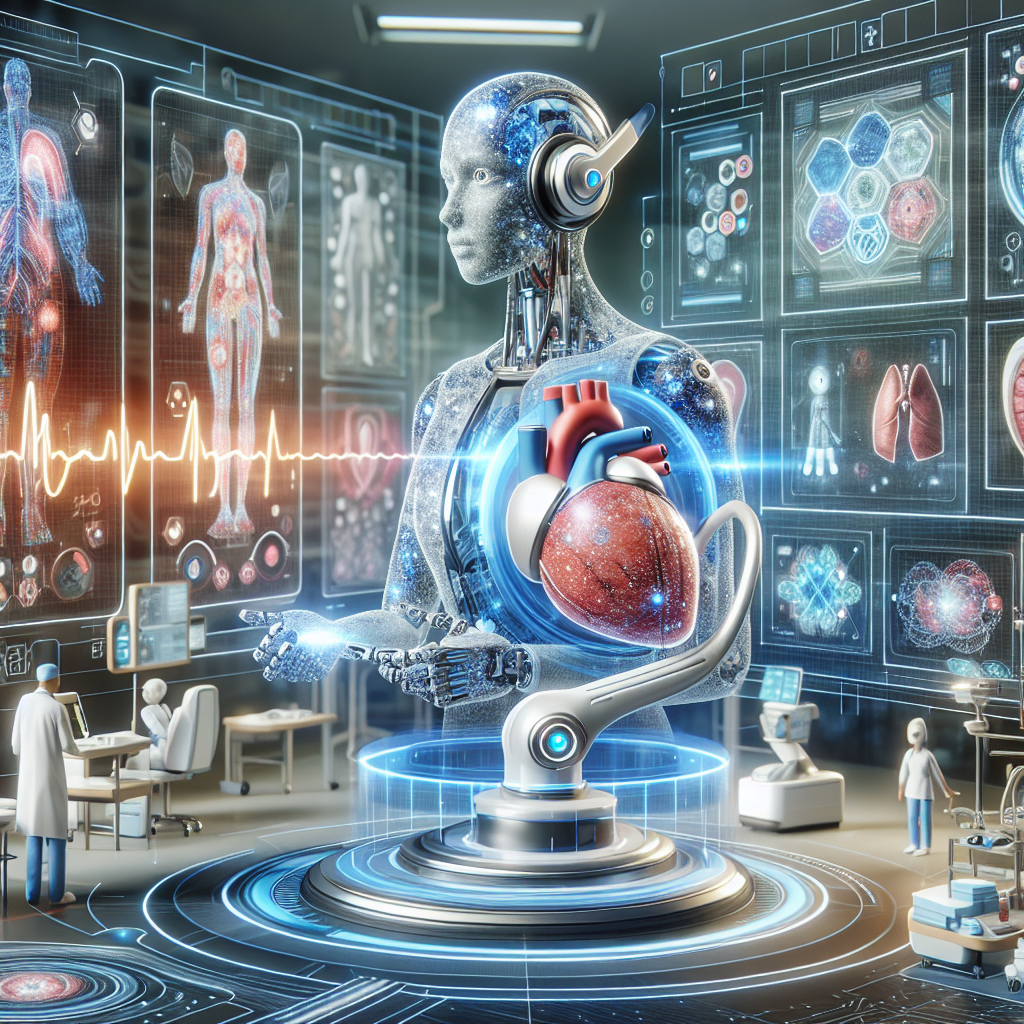Artificial General Intelligence (AGI) has the potential to revolutionize the healthcare industry, particularly in the diagnosis and treatment of diseases. AGI refers to a type of artificial intelligence that possesses the ability to understand, learn, and apply knowledge across a wide range of tasks, much like a human. In healthcare, AGI can analyze vast amounts of medical data, identify patterns and trends, and provide personalized treatment recommendations to patients. This article explores the impact of AGI in healthcare and how it is reshaping the way diseases are diagnosed and treated.
The Role of AGI in Healthcare
AGI has the potential to significantly improve the efficiency and accuracy of disease diagnosis. By analyzing patient data such as medical history, symptoms, lab results, and imaging scans, AGI can identify patterns and correlations that human doctors may overlook. This can lead to earlier and more accurate diagnosis of diseases, allowing for timely intervention and treatment.
In addition to diagnosis, AGI can also play a crucial role in treatment planning. By analyzing vast amounts of medical research and clinical data, AGI can suggest personalized treatment plans based on the individual patient’s genetic makeup, lifestyle factors, and medical history. This can lead to more effective and targeted treatments, minimizing side effects and improving patient outcomes.
Furthermore, AGI can help healthcare providers streamline administrative tasks and improve operational efficiency. By automating routine tasks such as scheduling appointments, billing, and coding, AGI can free up healthcare professionals to focus on patient care. This can lead to reduced wait times, improved patient satisfaction, and lower healthcare costs.
Challenges and Opportunities
While the potential benefits of AGI in healthcare are immense, there are also challenges that need to be addressed. One of the main concerns is the ethical implications of using AGI in healthcare. Issues such as patient privacy, data security, and algorithm bias need to be carefully considered to ensure that AGI is used responsibly and ethically.
Another challenge is the integration of AGI into existing healthcare systems. Many healthcare providers may lack the necessary infrastructure and expertise to implement AGI technologies effectively. Training healthcare professionals to use AGI tools and ensuring interoperability with existing systems will be crucial for the successful adoption of AGI in healthcare.
Despite these challenges, the opportunities presented by AGI in healthcare are vast. By harnessing the power of AGI, healthcare providers can improve patient outcomes, reduce healthcare costs, and enhance the overall quality of care. As AGI technology continues to advance, the possibilities for its application in healthcare are endless.
FAQs
Q: What is the difference between AGI and other types of artificial intelligence?
A: AGI refers to a type of artificial intelligence that possesses the ability to understand, learn, and apply knowledge across a wide range of tasks, much like a human. This is in contrast to narrow AI, which is designed to perform specific tasks or functions within a limited domain.
Q: How can AGI improve disease diagnosis in healthcare?
A: AGI can analyze vast amounts of medical data, identify patterns and correlations, and provide personalized treatment recommendations to patients. This can lead to earlier and more accurate diagnosis of diseases, allowing for timely intervention and treatment.
Q: What are some of the challenges of using AGI in healthcare?
A: Some of the main challenges of using AGI in healthcare include ethical concerns, integration with existing systems, and the need for training healthcare professionals to use AGI tools effectively.
Q: How can healthcare providers prepare for the adoption of AGI technology?
A: Healthcare providers can prepare for the adoption of AGI technology by investing in infrastructure and expertise, training healthcare professionals to use AGI tools, and ensuring interoperability with existing systems.
In conclusion, AGI has the potential to revolutionize the diagnosis and treatment of diseases in healthcare. By analyzing vast amounts of medical data, identifying patterns and correlations, and providing personalized treatment recommendations, AGI can improve patient outcomes, reduce healthcare costs, and enhance the overall quality of care. While there are challenges that need to be addressed, the opportunities presented by AGI in healthcare are vast. As AGI technology continues to advance, the future of healthcare looks brighter than ever.

